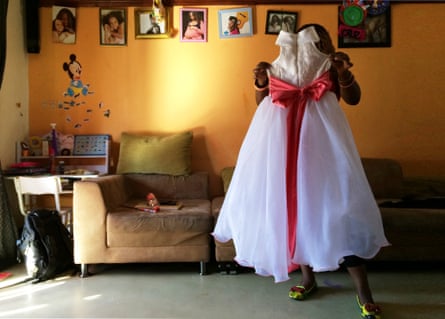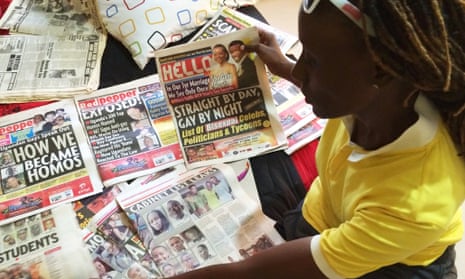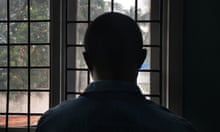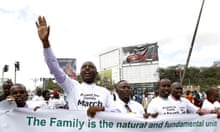“Go away! We know who you are. We don’t want you in our country. If we see you, we’ll burn you to death.” Melanie Kiwagama reads out the text messages she received last year, after Uganda’s notorious anti-homosexuality bill came into effect. Since then, she says the flow of threats towards her and her partner have been constant.
Despite being annulled by the country’s constitutional court on a technicality last summer, MPs haven’t given up on attempts to further criminalise homosexuality. According to a leaked draft, a new law is in the making.
“We had no clue what was happening,” says Kiwagama’s girlfriend Rachael Kungu, referring to the heightened prejudice they face. The couple have been together for 12 years and are raising a five-year-old son. “Of course there was gossip before, and we’d receive threats. Sometimes we would hear stories of a guy being beaten up because he was trying to hit on some man or something. But the hate wasn’t that widespread until now.”
Kungu is a famous DJ in Uganda, and a popular figure in Kampala’s nightlife scene. But where tabloids like Red Pepper and Hello! Uganda previously wrote about her performances, her name and photos now feature in articles headlined “Exposed!” or “Straight by day, gay by night”. She saves a copy of each of these newspapers behind her bed. “Evidence,” she shrugs. “In case something happens.”
Discrimination
In Uganda, homophobia has been widespread since the prohibition of homosexuality in the 1950s. But it wasn’t until February that president Yoweri Museveni signed a law that not only outlawed homosexual acts, but also compelled citizens to report suspected homosexual activity to the police, triggering increased levels of prejudice, violence and discrimination against the gay community.
In August 2014, just a few months later, the legislation was annulled: the law was passed without the requisite quorum, meaning that not enough MPs were present at the vote. The judgment was received by activists with cheers of joy, even though the verdict was based on technical grounds, rather than moral or ethical concerns.

“It’s a bad habit,” says politician Medard Bitekyerezo, a member of the ruling NRM party, in an interview. “I will never believe that homosexuality has something to do with genetics.” According to the politician, homosexuals are recruiting children with the intention of teaching them homosexuality. He shows a photo of his children he keeps in his wallet: two sons and a daughter. “I don’t want anybody to harm them.”
Bitekyerezo is one of the MPs pushing for new anti-homosexuality legislation which was expected to be brought to parliament before Christmas, but seems to be delayed. It not only curbs acts of homosexuality, but also the “promotion” of it. If found guilty, those convicted could receive prison sentences of up to seven years.
Outcry
It’s purely about politics, says Nicholas Opiyo of the human rights organisation Chapter Four Uganda. Opiyo contested the law in court last summer, which led to its annulment, and is getting ready for the next round. According to him the whole mechanism surrounding the legislation is not really a legal matter, but a political one. “Members of parliament are jumping onto this as a popular cause for their own political survival.”
For Museveni, this issue seems to have put him in a difficult position. Not only is he being pressured by his party to reinstate the law, but he is also aware of foreign policy implications that may ensue.
Startled by the international outcry earlier this year, the president has urged his party not to rush. But this is not a sign of a change of heart, says Bitekyerezo. “He’s talking, but in his heart he knows what is there. Jesus knows what is in the heart of the president. I do not think that the president of Uganda will allow anybody to come here and destroy the children of Uganda.”
Kungu and Kiwagama await the possible new law with dread. But whether it will be implemented or not, for Kungu the damage has already been done. “People have fled the country, lost their homes, lost their jobs – you can’t change that.” Once very popular, the DJ has lost numerous gigs this year. Clubs where she once performed have abandoned her. “The morning my name was in the paper, I knew I would lose a gig that same afternoon. People are afraid to be associated with me.”
Comparatively, Kiwagama has had more luck over the last year. As a wedding planner, she relies on the advertising by word-of-mouth from happy clients. She knows her job is not without irony, though: she will probably never enjoy the freedom of marrying the one she loves in her own country.
Saskia Houttuin is a Dutch foreign news journalist with the programme VPRO Bureau Buitenland.








Comments (…)
Sign in or create your Guardian account to join the discussion